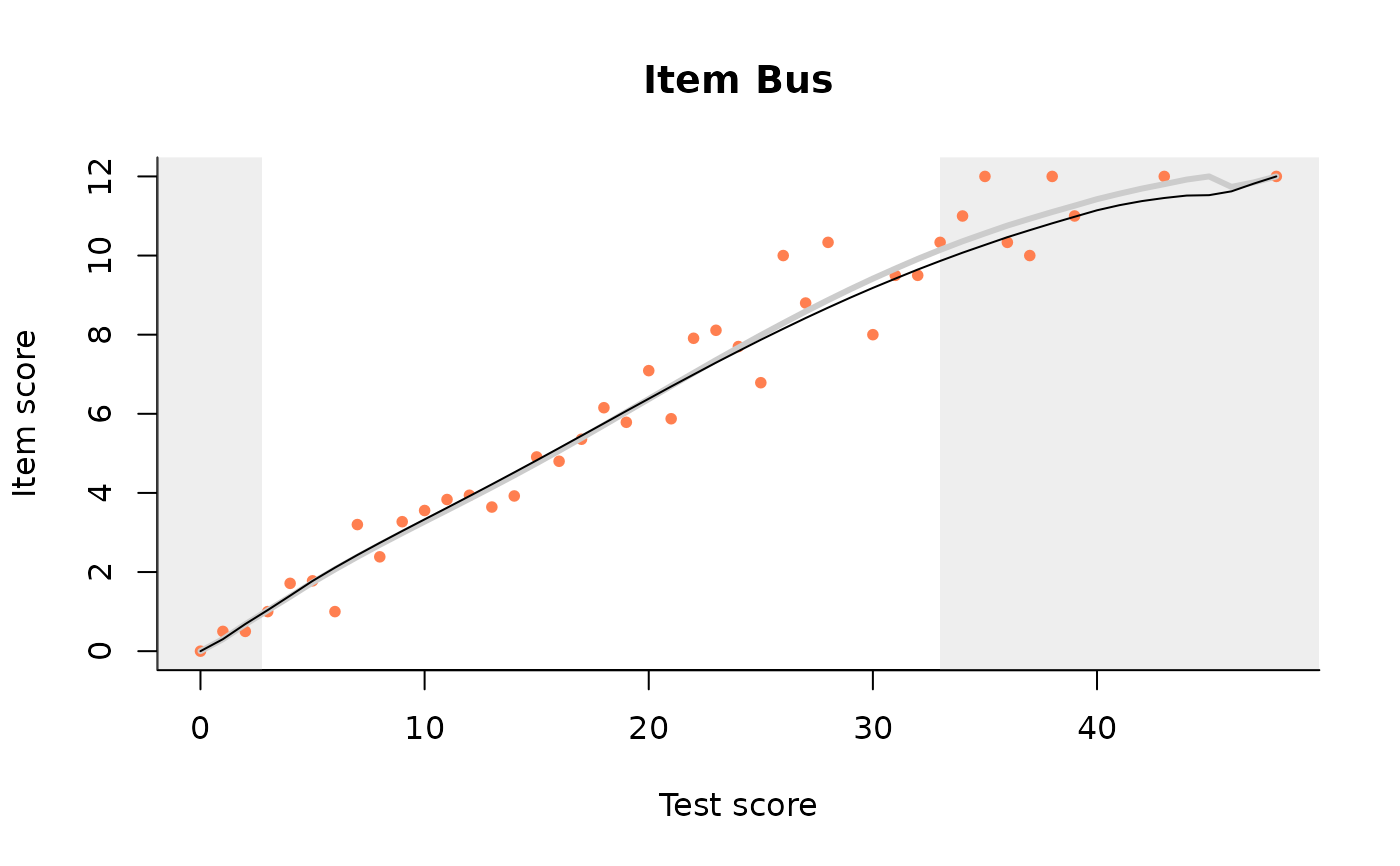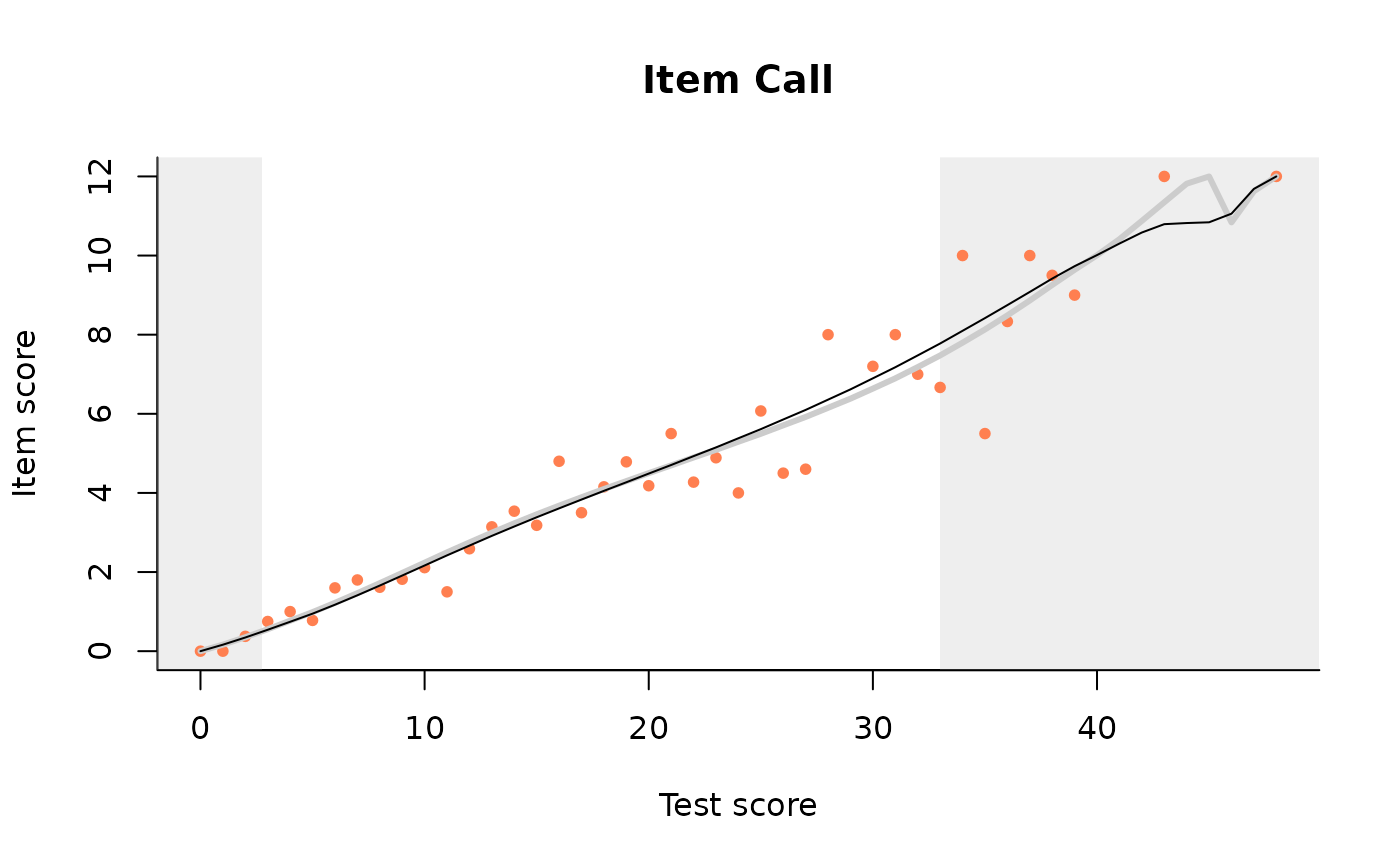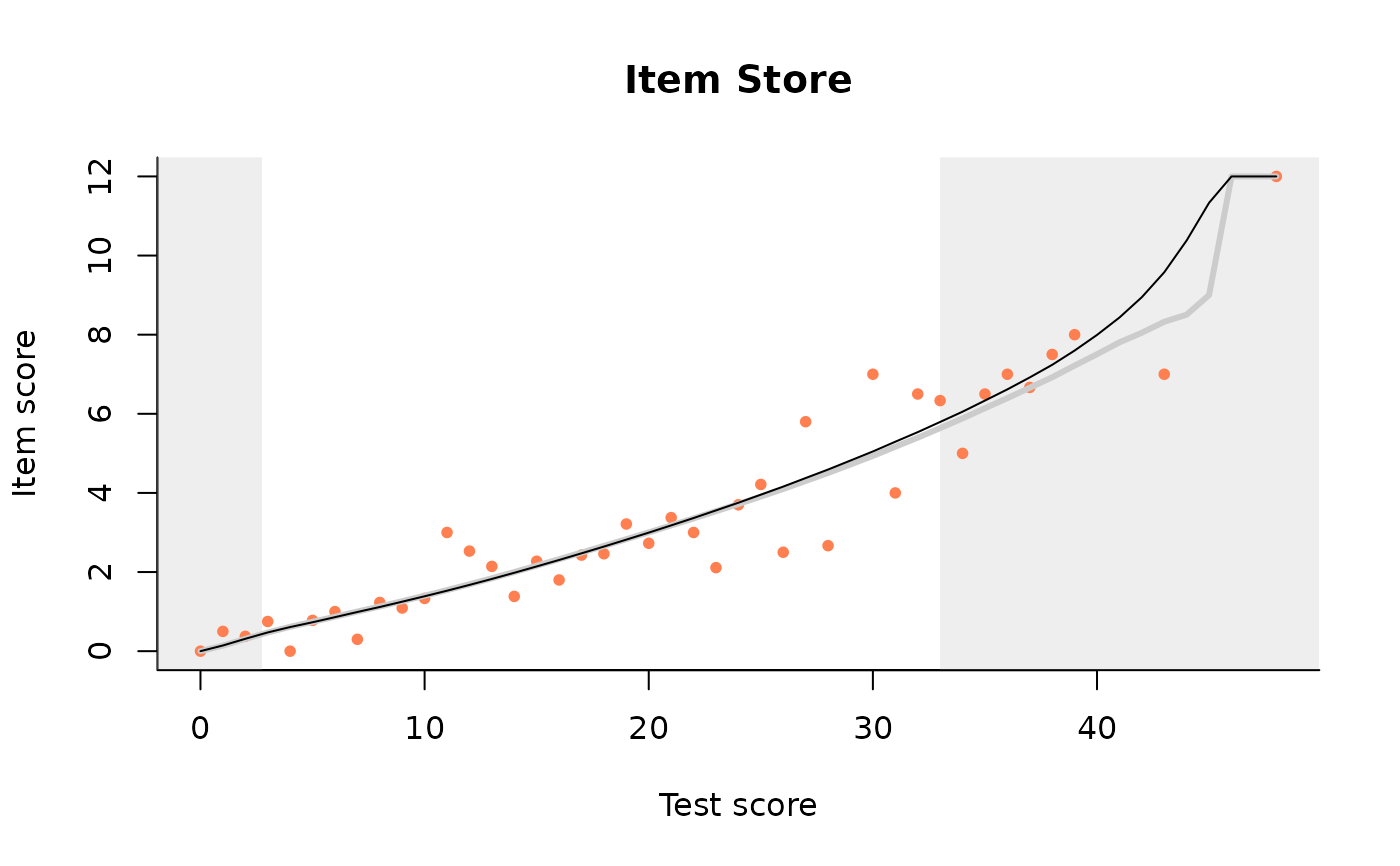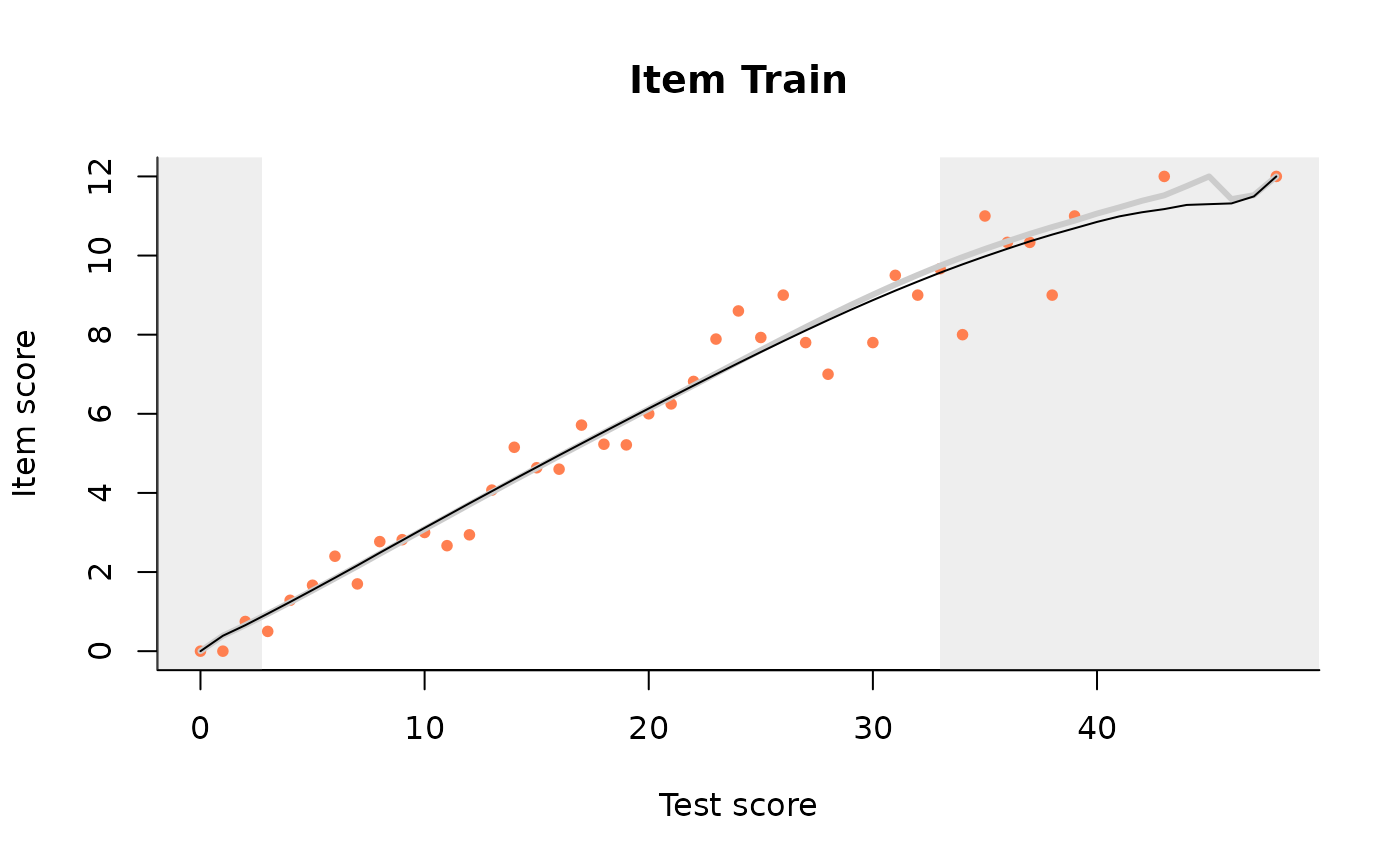Estimate the Rasch and the Interaction model per domain
Source:R/interaction_model.R
fit_domains.RdEstimate the parameters of the Rasch model and the Interaction model
fit_domains(dataSrc, item_property, predicate = NULL)Arguments
Value
An object of class imp holding results
for the Rasch model and the interaction model.
Details
We have generalised the interaction model for items having more than two (potentially, a largish number) of response categories. This function represents scores on subtests as super-items and analyses these as normal items.
See also
Examples
db = start_new_project(verbAggrRules, ":memory:")
add_booklet(db, verbAggrData, "agg")
#> no column `person_id` provided, automatically generating unique person id's
#> $items
#> [1] "S1DoCurse" "S1DoScold" "S1DoShout" "S1WantCurse" "S1WantScold"
#> [6] "S1WantShout" "S2DoCurse" "S2DoScold" "S2DoShout" "S2WantCurse"
#> [11] "S2WantScold" "S2WantShout" "S3DoCurse" "S3DoScold" "S3DoShout"
#> [16] "S3WantCurse" "S3WantScold" "S3WantShout" "S4DoCurse" "S4DoScold"
#> [21] "S4DoShout" "S4WantCurse" "S4WantScold" "S4WantShout"
#>
#> $person_properties
#> character(0)
#>
#> $columns_ignored
#> [1] "gender" "anger"
#>
add_item_properties(db, verbAggrProperties)
#> 4 item properties for 24 items added or updated
mSit = fit_domains(db, item_property= "situation")
plot(mSit)



 close_project(db)
close_project(db)